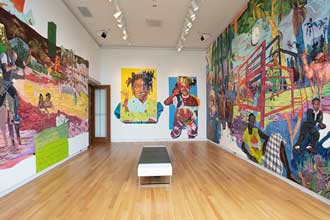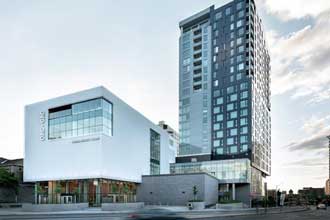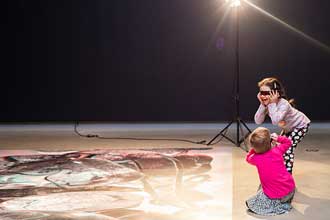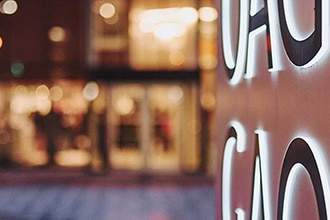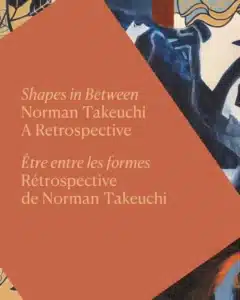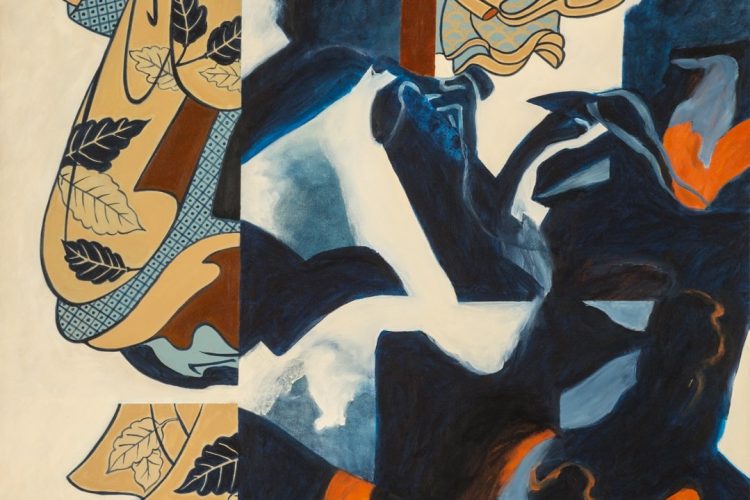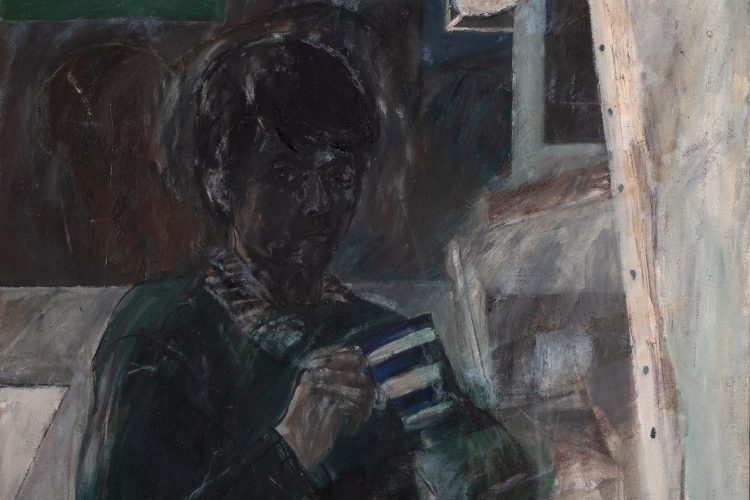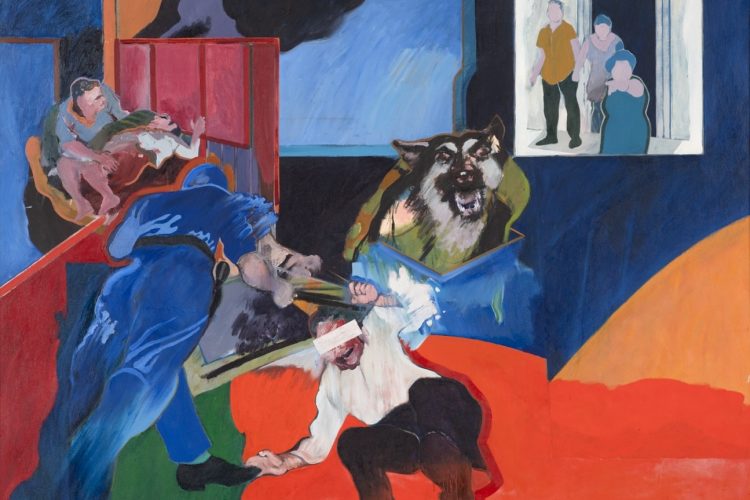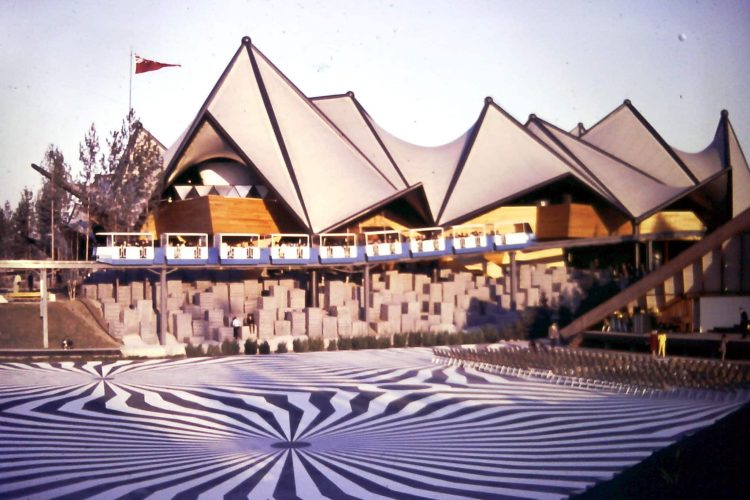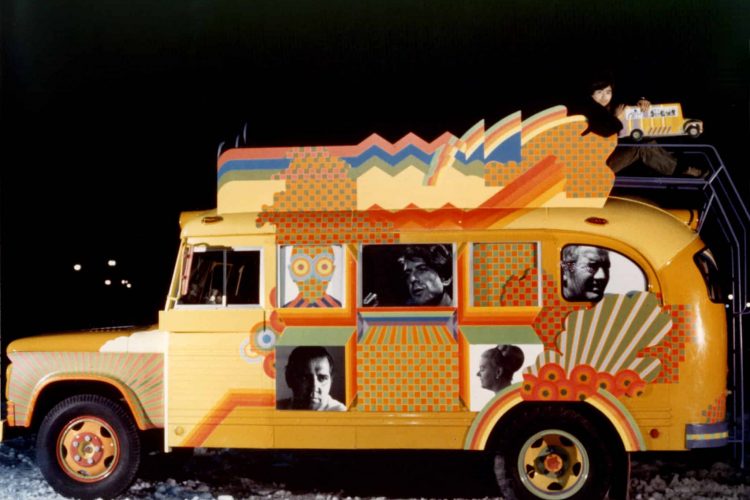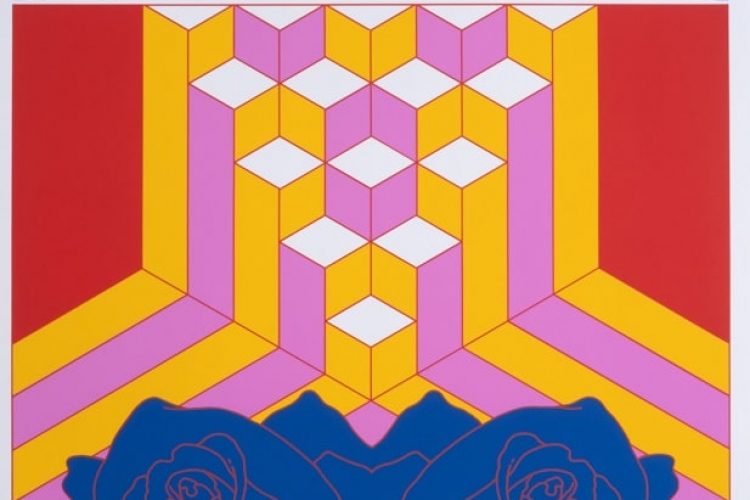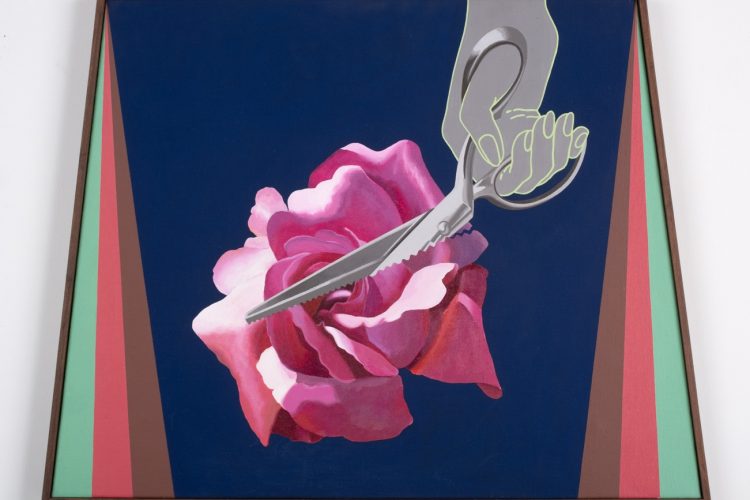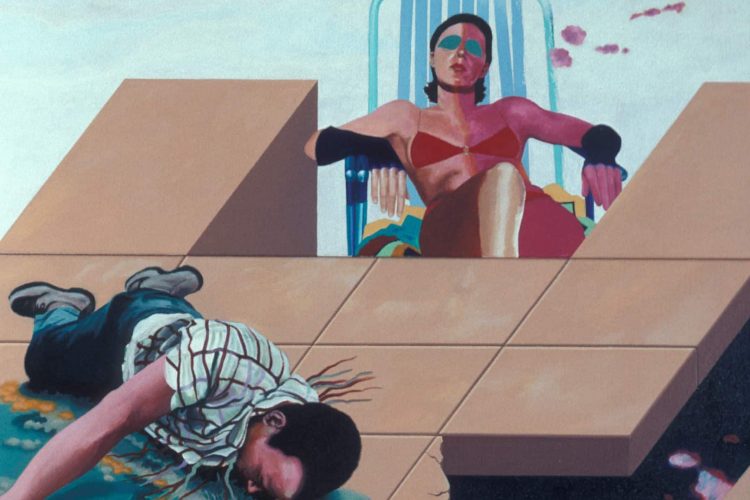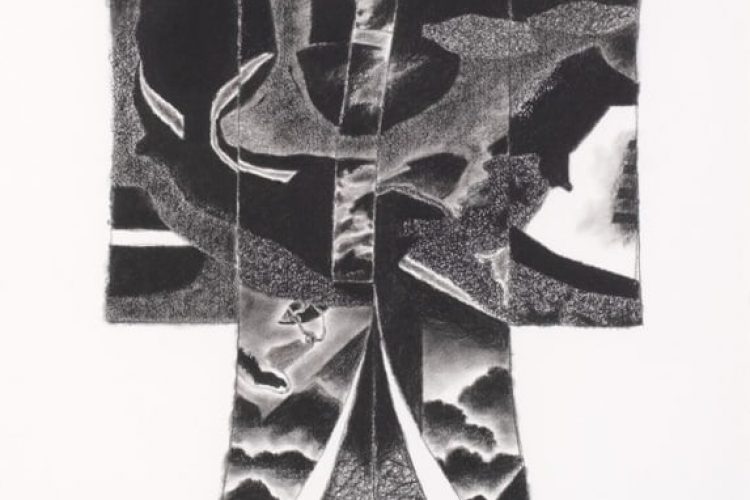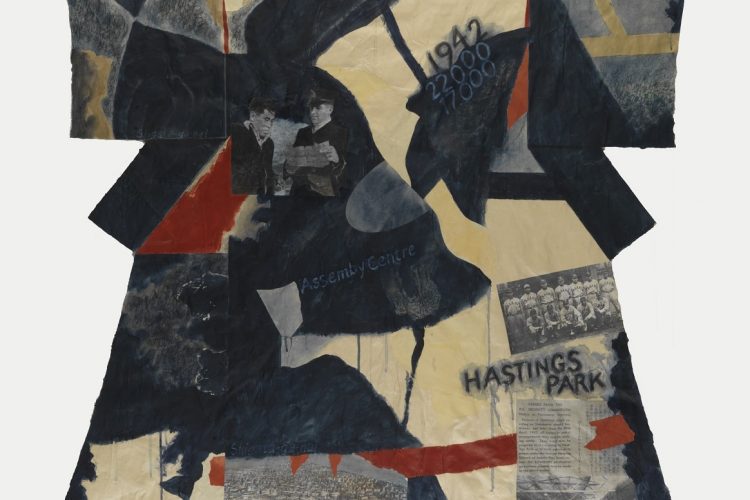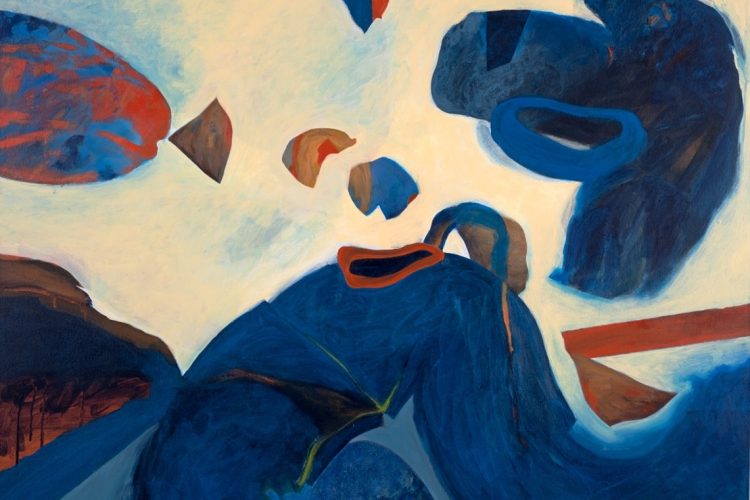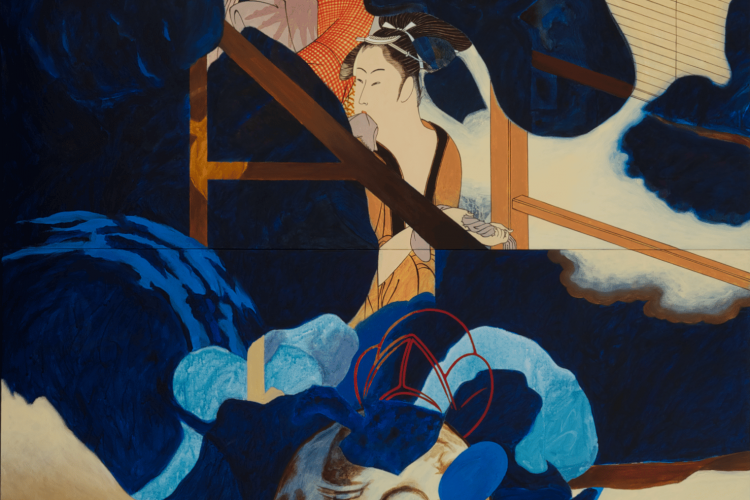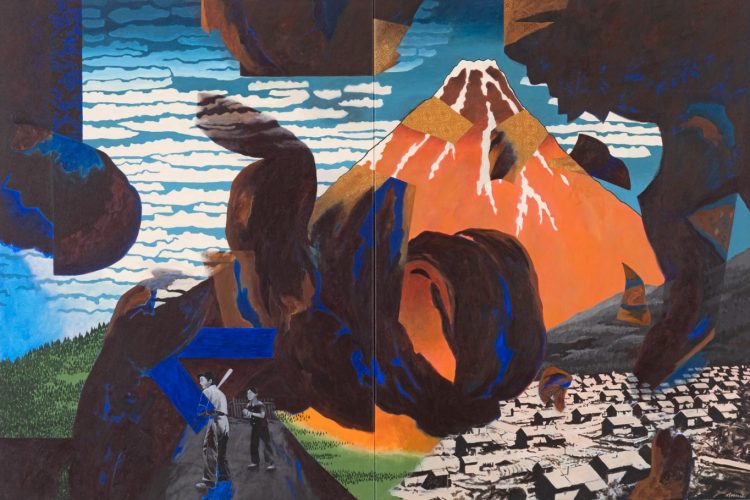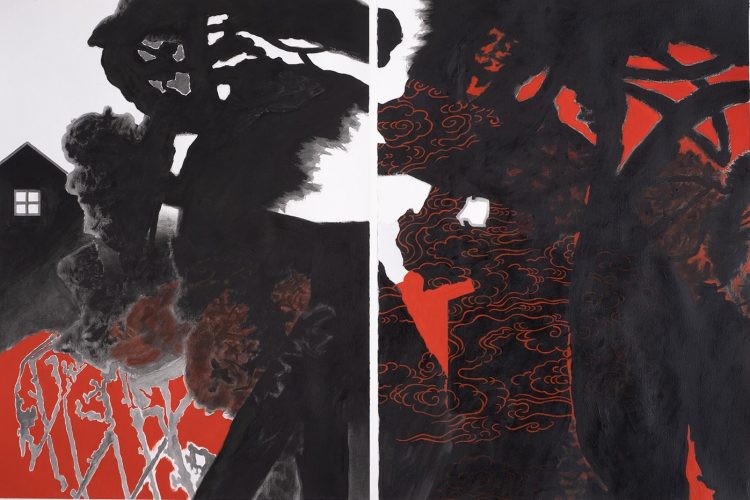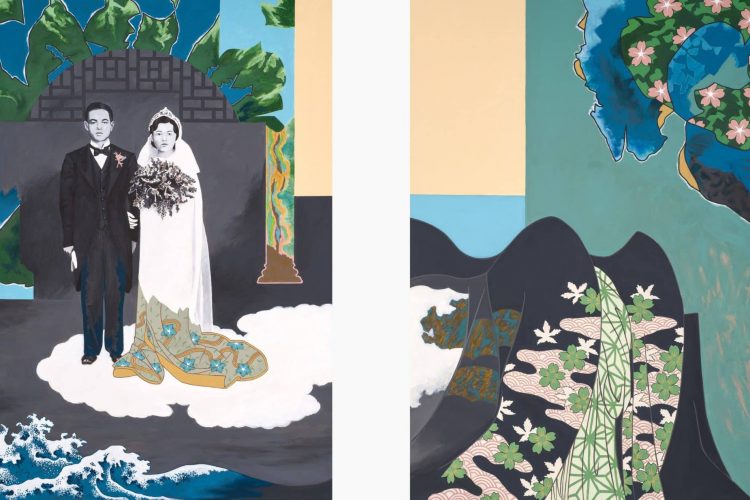Shapes in Between | Norman Takeuchi
A Retrospective
April 1, 2023
- March 24, 2024
This retrospective exhibition highlights the work of Ottawa-based artist Norman Takeuchi. Together, an array of drawings, paintings, and prints spanning the years 1961 to 2022 demonstrate the continuity of his artistic rigour. These works also make known the artist’s personal engagement with the impact of the Japanese Canadian internment and forced dispersal during World War II, and ultimate acceptance of his cultural heritage.
Arranged thematically, the works in the exhibition reveal the artist’s variety of subject and technique, yet also demonstrate a continuity of recurring motifs, technique, and material. Takeuchi’s use of abstract painting, first learned at the Vancouver School of Art in the late 1950s, is a constant. Another is his use of a collage-like aesthetic throughout his compositions, such as combining the minimalist lines of Pop art with gestural abstract forms. His skills in drawing and graphic art are persistently present. This exhibition reveals for the first time examples from his little-known graphic art career. He worked as a graphic designer at Expo 67 in Montreal and Expo 70 in Osaka, and then at the Canadian Museum of Natural Sciences (now the Canadian Museum of Nature) for several decades.
Takeuchi has applied these techniques over the years to recurring subject matter. He has consistently addressed social injustice through depicting common participants, such as the survivor, protester, or bystander, in global news coverage of events. As the artist began to contend with his own past, he drew from archival imagery of the Japanese Canadian internment and included emergent references to this thought process throughout nature-based still life drawings. As he continues to learn more about his own heritage, Takeuchi’s works now incorporate Japanese cultural references, including art historical motifs from nineteenth-century woodblock prints and more, bringing them into dialogue with his own unique abstract forms in singular compositions.
Viewing Norman Takeuchi’s decades of work together here not only demonstrates the result of a skilled and unique artistic practice, but also his story of finding an increasingly honest understanding of his own past, and embracing the collective legacy of his community.
Curators: Catherine Sinclair, Sachiko Okuda, Bryce Kanbara
Research Assistance: Michael Abe, Moonsun Choi, Sarah Jasmine Hodgson, Matt Miwa, Éloïse Mutombo, Emily Putnam, Ann Sunahara
Exhibition Design: Leah Ross
Technical Team: Jennifer Gilliland, Dan Austin, Rob Keefe, Mark Garland, Ryan Forget, Neil Hossack
Editors: Lucy Trew, Véronique Couillard
French Translation: Marie-Camille Lalande
The Ottawa Art Gallery is grateful for the work of Marion Takeuchi and members of the Japanese Canadian community for their consultation and input into the development of this exhibition.
The Ottawa Art Gallery would also like to acknowledge the support of the Embassy of Japan in Canada, the Ottawa Japanese Community Association, the City of Ottawa, the Ontario Arts Council, and the Canada Council for the Arts.
Exhibition Catalogue
Visit the OAG Shop in person on level 1, or online at shop.oaggao.ca to purchase a copy of the exhibition catalogue.
Gratitude to our Catalogue Sponsors:
Catalogue Editorial Sponsor: Studio Sixty Six, Norman Takeuchi’s contemporary gallery in Ottawa, please visit: studiosixtysix.ca/collections/norman-takeuchi
Catalogue Funding Partner: The Japan Foundation, Toronto Local Grant Program
Images
Tour the Exhibition
Related Events
Additional Resources
Please click tags for both English and French content.
REFERENCES CONSULTED
Books:
British Columbia Security Commission. Removal of Japanese from Protected Areas: Report. Vancouver: The Commission, 1942.
Kawamoto Reid, Linda and Beth Carter. Karizumai: A guide to Japanese Canadian Internment sites. Vancouver : Nikkei National Museum, 2013.
Online resources:
Canadian Nikkei Youth Baseball Club and Shin Asahi Baseball. “The Vancouver Asahi Story.” https://www.asahibaseball.com/history.html#:~:text=The%20Asahi%20baseball%20team%20became,future%20generations%20of%20all%20Canadians.
Government of British Columbia. “Japanese Canadian Internment Sites of the Second World War: Slocan Extension Internment Sites; Slocan City, Bay Farm, Popoff, Lemon Creek.” https://www2.gov.bc.ca/assets/gov/driving-and-transportation/driving/japanese-internment-signs/slocan_extension_japanese_internment_camp.pdf.
JapaneseCanadianHistory.net. “Japanese Canadian History: Visual Timeline.” https://japanesecanadianhistory.net/historical-overview/visual-timeline/.
The Japanese Canadian Hastings Park Commemoration and Education Project. “1942 Japanese Canadian Internment at Hastings Park.” http://hastingspark1942.ca/.
ADDITIONAL RESOURCES
Books, non-fiction:
Greater Vancouver Japanese Canadian Citizens Association Redress Committee. Justice in our Time: Redress for Japanese Canadians. Vancouver: National Association of Japanese Canadians, 1988.
Miki, Roy and Cassandra Kobayashi. Justice in our Time: the Japanese Canadian Redress Settlement. Vancouver: Talonbooks; Winnipeg: National Association of Japanese Canadians, 1991.
Stanger-Ross, Jordan, ed. Landscapes of Injustice: a New Perspective on the Internment and Dispossession of Japanese Canadians. Montreal; Kingston: McGill–Queen’s University Press, 2020.
Sunahara, Ann Gomer. The Politics of Racism: the Uprooting of Japanese Canadians during the Second World War. Toronto: James Lorimer, 1981. Available online at: http://japanesecanadianhistory.ca/
Books, fiction:
Itani, Frances. Requiem. Toronto: HarperCollins, 2011.
Kogawa, Joy. Obasan. Toronto: Lester & Orpen Dennys, 1981.
Online resource:
Landscapes of Injustice Research Collective. “ Landscapes of Injustice Archive.” Ed. Jordan Stanger-Ross. Victoria: University of Victoria. https://loi.uvic.ca/archive/oral_history_kita115_2017-06-17.html.

